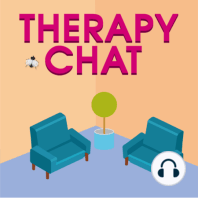9 min listen
57: How Children Are Like Horses
FromTherapy Chat
ratings:
Length:
14 minutes
Released:
Oct 28, 2016
Format:
Podcast episode
Description
How Children Are Like Horses (And Why You Should Care) If you have been listening to Therapy Chat podcast lately, you know that I have been talking about using equine assisted psychotherapy and education methods to get in touch with our emotional experiences. In Episode 55 I described my own experience of making a deep soul connection in a barn when I spent a Saturday morning at an equine learning workshop with four other women and two horses. That changed me and I am still feeling it, weeks later. I can’t wait to do more – and I will in a couple weeks when I trek to the Hudson Valley for a beautiful Equine Retreat for Therapists and Healers offered by my friends and colleagues Rebecca Wong and Marisa Goudy. Then in Episode 56 I interviewed Charlotte Hiler Easley, an LCSW and Equine Specialist in Lexington, Kentucky who developed a model called Equine Assisted Survivors of Trauma Therapy that is being used with survivors of sexual assault to experientially teach safety in our bodies, to see what it feels like to set and hold boundaries, and to take care of ourselves in relationship – as well as allowing ourselves to be vulnerable and risk trusting another who may hurt us. This experiential work with survivors of trauma sounds very powerful to me, as someone who has worked for years with trauma survivors; and as someone who has recently had a life-changing experience with horses. In hearing about Charlotte’s work and after my own experience I realized there are some similarities between children and horses which are very relevant to the therapy work I do with my clients. It might seem like a strange connection, but stay with me. I’m going to tell you about three ways that children are like horses and why you should care. As I explained in episode 55 and the blog post that went with it – this information comes from the EAGALA website - equine-assisted psychotherapy and learning works for these reasons: “Because horses are prey animals, they rely on non-verbal cues to stay alive. Their lives depend on accurately reading these cues.” Horses learn from their interactions with us whether or not we are safe, which lets them know if they are safe. Children do the same thing. They read our body language more than our words. “Like humans, horses are social creatures who live in herds.”We humans are wired for connection, as Brené Brown frequently says. It goes back to attachment. Children need protection and care from the adults they depend on for survival. When a baby is born that child is completely helpless and dependent upon their caregivers for protection. Safety to a newborn baby means being given food, sheltered from the elements and being held and soothed. Physical safety is being protected from harm; emotional safety is “will you be there when I need you? Do you care about what I need?” “Horses know when what we are saying and doing don't match what we are feeling and sensing, even though we might not know. They reflect back to us what we are feeling and sensing, or the incongruence between our feelings, sensations, words and actions, even (especially) when it's outside of our conscious awareness." Children also notice incongruence between our words and our non-verbal cues. Children know when a parent says they are not mad but they really are. They know when a parent is crying, but says nothing is wrong, that it isn’t true. Why do they pay attention to this? It’s part of how they make sure they are safe. If their primary caregiver isn’t okay, then they aren’t okay, because who will take care of them if something happens to the primary caregiver? Okay, so I’ve made my case for children being like horses in three ways, but why should you care? Well, you should care if you are a parent because it’s important to understand what your children need in order to thrive. (Click here to listen to Episode 21 on raising well-adjusted children). And you should care even if you aren’t a parent because you were once a c
Released:
Oct 28, 2016
Format:
Podcast episode
Titles in the series (100)
21: The Secret to Raising Well Adjusted Children: Three Rules for Parents by Therapy Chat
